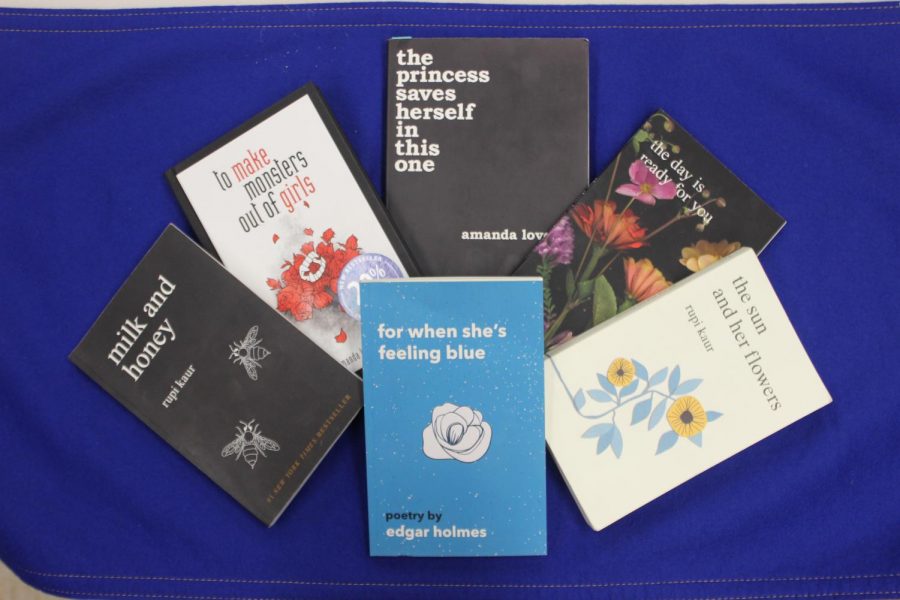When I revived my love of poetry in ninth grade (not that it ever really died; I still have the horrible rhymes to prove it), I decided I needed a poetry book, something to coach me on what “good poetry” looked like. A Google search gave me a list of the “top poetry books,” and after hours spent weeding out the old white guys (sorry Walt Whitman), I settled on the top poet of 2017 and modern poetry darling: Rupi Kaur.
So, when I skimmed the content of Kaur’s newest book with high expectations, suffice to say I was…underwhelmed. Between the banal phrases and cliched philosophies slapped together and painted off as profound and the line art that only made Kaur’s dismal future in artistry oh-so-clear, Kaur’s poetry failed to live up to the hype. It tried too hard to do what other poets have done so effortlessly: make their words meaningful.
But it’s not the wannabe-abstract doodles that make the situation depressing; it’s not the absence of grammatical sense (a crime most poets have been guilty of at one time or another) that explains why I look at Rupi Kaur and despair for the future of modern poetry. Kaur’s oversimplified poetry lacks the intensity of emotion, the appreciation for expression that is inherent to the definition of poetry itself — the very things that made me fall in love with it in the first place.
Rupi Kaur is the face of a trend weaving its way through mainstream poetry: the Instapoets. These modern poets use social media platforms to boost their readership, sharing small snippets of nonsense on feeds and “for you” pages. Their capitalization of modern technology is nothing new; the problem is the cookie-cutter commercialization mold doesn’t quite work when it comes to poetry.
Poetry is a free-flowing form, a product of the heart and mind. So, when Instapoets advertise their work via manicured profiles carefully curated into an aesthetic Pinterest board, they steal the soul from the art; they reduce poetry to an image, a lifestyle to be imitated and nothing more.
This hollowness shows itself in their words, dubbed “greeting card verse” for their tendency to sound like they have been copy-pasted from the front of one of Hallmark’s overused products. It does have its audience, of course. Its snippets can be digested in one read – no SparkNotes needed – perfect for the shrinking attention span of today’s youth.
Yet analysis is part of what makes poetry beautiful. There is a satisfaction in uncovering the meaning of a metaphor, in gleaning an interpretation of a poem. Poetry is not just the art of accessibility and quick reading; it is the appreciation of language as a means of capturing emotion and connecting with others.
What Kaur and the Instapoets do is a diluted version of that noble purpose, a blend of words and maximum efficiency. The barest hint of relatability through the minimum amount of effort and paraphrased philosophy and BAM! Suddenly, you’re the most popular poet of the modern age. Anyone else could have launched that idea; Rupi Kaur just did it first.
As bland as it is, some good has come from this movement. The inspirational quote-esque Instapoets have strongarmed poetry back into the mainstream, and more teens than ever can be seen walking around, poetry book in hand.
But how long will this truly last? Are people carrying copies of milk and honey because they like poetry or because it’s popular? Once Rupi Kaur bleeds out of popularity, will their interest remain, or will poetry books go back to being abandoned in dust-covered attics and bent-covered book donations?
There is no telling how long Rupi Kaur and the Instapoets will continue in their reign over mainstream poetry, but one thing is certain: the poetry of the modern age is no longer what it used to be – if it can be considered poetry at all.



